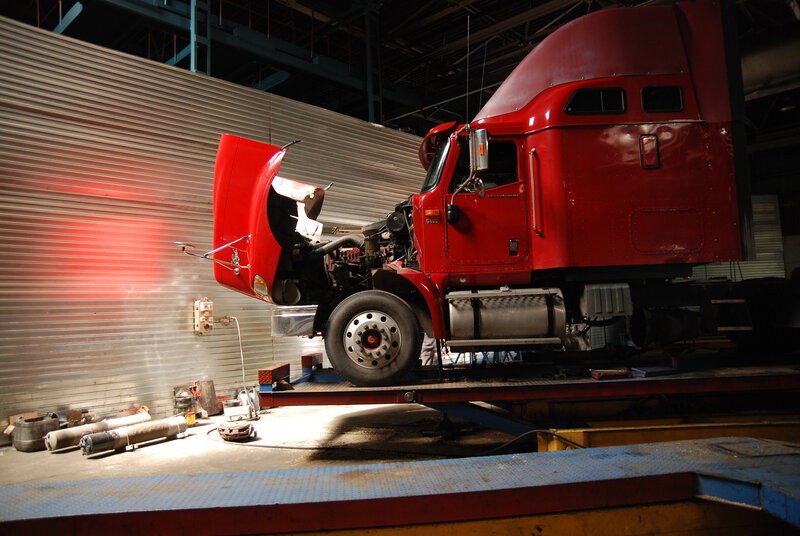A diesel engine refusing to start can be incredibly frustrating. There are several reasons why your diesel engine won’t turn over, ranging from simple fixes to more complex issues. Understanding the potential causes can help you troubleshoot the problem and get back on the road.
Common Reasons a Diesel Engine Won’t Start
Diesel engines rely on compression and fuel to ignite. A problem in either system can prevent starting. Here’s a breakdown of common culprits:
1. Starter System Issues
The starter system engages the crankshaft, creating the compression needed for combustion. A faulty starter system is a common reason for a diesel engine not starting. Key components to check include:
- Battery Strength: A weak or dead battery won’t provide enough power to crank the engine. Test the battery voltage.
- Voltage Drop: Excessive voltage drop indicates a poor connection or resistance in the starting circuit.
- Current Draw: High current draw could point to a failing starter motor or a mechanical issue binding the engine.
- Starter Condition: A faulty starter solenoid or motor can prevent the engine from cranking. Listen for clicking sounds or a slow crank.
 diesel engine starter system components
diesel engine starter system components
2. Compression Problems
Diesel engines require high compression to generate the heat necessary for ignition. Compression leaks can significantly impact starting ability. Potential leak sources include:
- Head Gasket: A damaged head gasket can allow compression to escape into the coolant or oil passages.
- Cracked Cylinder Head: A cracked head can lead to similar compression loss as a bad head gasket.
- Worn Piston Rings: Worn or damaged piston rings allow compression to leak past the pistons.
- Valve Issues: Damaged or improperly adjusted intake or exhaust valves can prevent proper compression.
3. Glow Plug Malfunction
Glow plugs are crucial for cold starts in diesel engines. They preheat the combustion chamber, aiding ignition in low temperatures (typically below 40°F). Issues to consider:
- Burned Out Glow Plugs: A burned-out glow plug won’t provide the necessary heat for combustion.
- Faulty Glow Plug Relay: A malfunctioning relay can prevent power from reaching the glow plugs.
- Wiring Problems: Damaged wiring in the glow plug circuit can disrupt their operation.
4. Fuel System Problems
Even with good compression and a functioning starter, a lack of fuel or problems with fuel delivery will prevent starting. Key areas to investigate:
- Fuel Injection System: Modern diesel engines utilize complex fuel injection systems. Issues with fuel pressure, injectors, or the fuel pump can cause starting problems. Common systems include: Common Rail, Hydraulic Unit Electrical Injection (HEUI), and Unit Injector (UI).
- Low Fuel Pressure: Insufficient fuel pressure prevents proper atomization and combustion. This can be caused by a weak fuel pump, clogged filters, or leaks in the fuel lines.
- Fuel Contamination: Water, air, or debris in the fuel can disrupt fuel flow and damage injection components.
- Clogged Fuel Filter: A restricted fuel filter hinders fuel delivery to the engine.
5. Fuel Injector Issues
Fuel injectors atomize fuel into the combustion chamber. Problems with injectors can prevent the engine from starting:
- Stuck Injectors: A stuck closed injector won’t deliver fuel.
- Leaking Injectors: A leaking injector can disrupt fuel pressure and atomization.
- Clogged Injectors: Deposits can clog injector nozzles, preventing proper fuel spray.
Getting Your Diesel Engine Started
Troubleshooting a diesel no-start issue requires a systematic approach. Start by checking the basics like battery voltage and fuel level. Then, move on to more complex diagnostics like compression and fuel system tests. If you’re not comfortable working on diesel engines, consult a qualified diesel mechanic. They have the tools and expertise to diagnose and repair the problem efficiently.
Conclusion
A diesel engine that won’t start can stem from various issues, from a simple dead battery to more complex fuel system problems. By understanding the common causes and utilizing a systematic troubleshooting approach, you can increase your chances of identifying the culprit and getting your diesel engine running smoothly again. Regular maintenance and timely repairs are crucial for preventing no-start situations and ensuring the longevity of your diesel engine.
